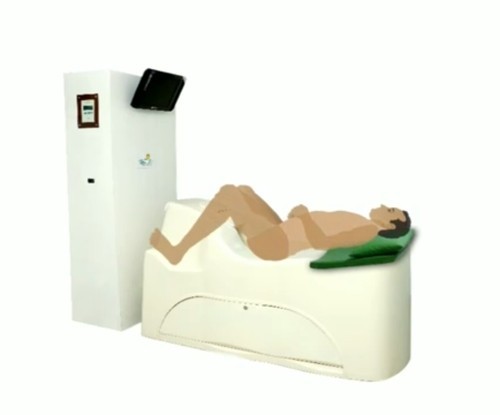Introduction:
Hydrotherapy of the colon, also known as colonic cleansing or irrigation, involves using water to flush waste out of the large intestine.
Weight loss
Some practitioners of hydrotherapy suggest that it can help people lose weight, but there is no evidence of this. After undergoing the procedure, a person may find that they have lost a few pounds, but these results from losing water and fecal matter — a temporary condition.
Treatment of irritable bowel syndrome
Some practitioners claim that colonic irrigation helps treat symptoms of Irritable Bowel syndrome (IBS). Patients report an improvement in abdominal pain, constipation and diarrhea.
It is important to highlight, however, that this study was very small and included no control group. The researchers acknowledge the need for further studies including placebos and larger studies that investigate the long-term effects, including those on the quality of life.
Detoxification
In the early 1900s, a theory that bacteria in the colon cause toxins to leak into the rest of the body gained popularity, but this theory has largely been debunked. However, it remains a basis for the belief that colonic irrigation can help detoxify the body. In fact, the body has organs to serve this specific purpose — the liver and kidneys.
Cleansing before surgery
Adequate cleaning is important to ensure that diagnostic and surgical procedures involving the large intestine are reliable. The accuracy and safety of such procedures — such as colonoscopy — often depend on thorough cleansing of the colon. Hydrotherapy can serve this purpose.
However, there are other, safer ways to cleanse the colon, including dietary changes and the ingestion of prescribed solutions.
Procedure:
Colonic irrigation involves inserting the nozzle of a device into the rectum to send water into the colon. A person can control the pressure and temperature of the water, and the entire procedure usually takes around 45 minutes.
Approximately 16 gallons of water pass through the bowel, and the fluid may contain herbal infusions or coffee. These supposedly offer additional benefits, though there is little, if any, evidence of this.
Risks and complications
Meanwhile, people who have undergone it have reported numerous negative effects.
Mild unwanted effects may include:
- stomach pain and cramping
- fullness and bloating
- diarrhea
- dizziness, nausea, and vomiting
- anal irritation and soreness
More severe complications of hydrotherapy of the colon can include:
- pancreatitis
- kidney failure
- heart failure
Some other adverse effects of colonic irrigation:
Dehydration
The procedure causes the body to lose water, which can be dangerous, as it may cause dehydration.
Infection
One risk is infection, either due to unsterile equipment or equipment that allows fecal matter to flow backward into the colon. Infection can also stem from the removal of healthful bacteria. Scientists have yet to fully explore the ways in which colonic irrigation may cause an imbalance in the microbial flora.
Perforated bowel
Forcing water into the colon can injure it — the pressure can damage the wall of the colon, causing it to tear. This issue, called a perforated bowel, is a medical emergency.
Symptoms may begin with fever, pain, chills, and nausea. The body may then develop sepsis, an extreme response to an infection that can be fatal.
Conclusion:
There are many claims about the possible benefits of colonic irrigation, but these are not validated by clinical trials or by other scientific evidence.
Due to the risks, some of which are very severe, and the lack of benefits, most health professionals do not recommend hydrotherapy of the colon.
